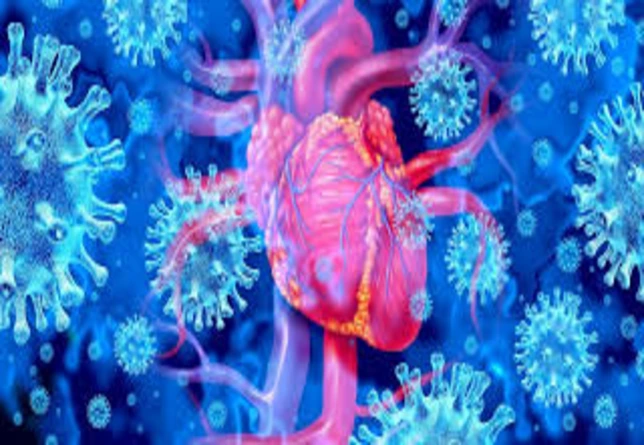As health officials continue to monitor side effects and safety data, the COVID vaccines heart risk warning update has triggered new conversations and concerns among Americans. While vaccines remain a critical tool in combating the pandemic, recent updates have reignited debates over myocarditis, pericarditis, and the long-term implications for certain populations.
This blog post breaks down the facts, dispels myths, and delivers critical insights from the latest findings—all centered around the COVID vaccines heart risk warning update.

Table of Contents
Understanding the COVID Vaccines Heart Risk Warning Update
In June 2025, new data released by the CDC and several peer-reviewed journals revealed updated statistics about heart inflammation cases linked to mRNA COVID-19 vaccines. The findings, though not entirely new, underscore a slightly elevated risk of myocarditis and pericarditis in specific demographics—particularly young males aged 16-30—following a second or third dose.
The COVID vaccines heart risk warning update does not advise against vaccination. Instead, it refines guidance, offering tailored recommendations for individuals based on age, sex, and medical history.
What the Latest COVID Vaccines Heart Risk Warning Update Means for You
Here are the seven most important takeaways from the update:
1. Myocarditis Risk Is Higher in Young Men
The updated warning confirms that males under 30, especially between 16–24, face a slightly increased risk of myocarditis shortly after receiving a second dose of an mRNA vaccine (Pfizer or Moderna). The symptoms usually occur within 7 days and are mostly mild and treatable.
2. No Elevated Risk in Older Adults
According to the new analysis, people over 40—regardless of gender—do not show a statistically significant increased risk. This provides reassurance to middle-aged and older adults who rely on boosters to protect against evolving COVID variants.
3. Moderna vs Pfizer: A Subtle Difference
The warning update highlights a marginally higher risk with the Moderna vaccine compared to Pfizer in the age group under 30. As a result, some public health agencies now recommend Pfizer for adolescents and young adults where possible.
4. Heart Risk Remains Lower Than Risk from COVID-19 Itself
A crucial point from the update: contracting COVID-19 still poses a far greater heart risk than vaccination. Studies indicate the virus can cause myocarditis, arrhythmia, and heart failure, especially in unvaccinated individuals.
5. Booster Dose Adjustments for Teens
New guidance suggests spacing booster shots further apart for teenagers and young adults to reduce risk. Instead of administering a booster within 6 months, it may now be advised after 9-12 months.
6. Symptom Awareness Is Key
The CDC encourages vaccine recipients—especially young males—to monitor for symptoms like chest pain, shortness of breath, or palpitations after vaccination. Early intervention has proven effective, with most patients making full recoveries within weeks.
7. Transparency Is Driving Trust
This COVID vaccines heart risk warning update was released as part of a broader push for transparency in public health. By publicly sharing risks—however small—health authorities hope to build credibility and foster informed decision-making.
Expert Opinions: Balancing Benefits and Risks
Cardiologists and epidemiologists across the U.S. support the continued use of mRNA vaccines, but with nuanced recommendations. Dr. Evelyn Marks of Johns Hopkins University stated:
“The vaccines remain safe and effective, but targeted adjustments—like age-based recommendations—will improve outcomes.”
The COVID vaccines heart risk warning update reflects this adaptive approach to public health: listen to data, evolve policies, and communicate clearly.
Media Response and Public Reaction
News outlets and social media channels have exploded with reactions—some informative, others fear-mongering. Unfortunately, misinformation tends to spread faster than facts.
To be clear:
- Vaccines are still recommended by the CDC, FDA, WHO, and leading medical institutions.
- The risk of heart complications is very low and temporary in nature.
- Medical professionals emphasize context and comparative risk over isolated data points.
What You Can Do Next
✅ Talk to your doctor – especially if you’re in the higher-risk demographic.
✅ Report symptoms early – the earlier myocarditis is caught, the easier it is to treat.
✅ Stay updated – follow the CDC, FDA, or local health department websites for reliable info.
✅ Don’t panic, but stay informed – updates like these are part of science’s natural course.
Final Thoughts
The COVID vaccines heart risk warning update should not be seen as a reason to avoid vaccination, but as a positive move toward precision public health. It highlights the scientific community’s ongoing commitment to transparency, safety, and evolution of guidance based on real-world data.
Vaccines have saved millions of lives. While no medical intervention is without risk, the numbers clearly show that the benefits of COVID-19 vaccines still far outweigh the minimal, treatable risks for most Americans.
As long as public health remains responsive and data-driven, Americans can continue to make informed decisions to protect themselves—and their communities.
Frequently Asked Questions (FAQ)
Q1: Should I still get the COVID vaccine after hearing this update?
A: Yes. For most people, the benefits far outweigh the risks. Speak with your healthcare provider if you’re under 30, especially if you’re male.
Q2: What are the symptoms of vaccine-related heart inflammation?
A: Symptoms include chest pain, shortness of breath, and rapid heartbeat. These usually appear within 7 days post-vaccination.
Q3: Is Moderna riskier than Pfizer?
A: Slightly. Moderna shows a marginally higher risk of myocarditis in men under 30, leading some agencies to recommend Pfizer for this group.
Q4: Can COVID-19 itself cause heart problems?
A: Yes. The virus can cause myocarditis and other cardiovascular issues, often more severely than the vaccine.
Q5: Will future COVID vaccines carry the same risk?
A: Ongoing development aims to reduce side effects while enhancing protection. Next-gen vaccines may use different delivery platforms.
- 9 Shocking Truths About Anna Wintour That Changed Fashion Forever
- 7 Exciting Facts About What Time Does Squid Game 3 Come Out (And What It Means for Fans!)
- 5 Fascinating Truths Behind the Enigma That Still Baffle the World Today
- 7 Powerful Reasons Why ‘Matlock’ Still Captivates Audiences in 2025
- The New York Mayor Election : A Pivotal Moment for the City’s Future 2025

1 thought on “7 Alarming Revelations from the Latest COVID Vaccines Heart Risk Warning Update”